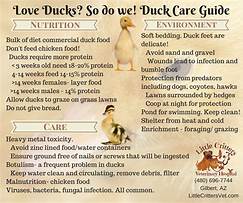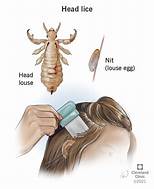How to Care for a Pet Duckling
Bringing a pet duckling into your home can be a rewarding experience, but it's important to know how to properly care for these little creatures. Here's a guide to help you get started:

Housing
1. Brooder: Ducklings need a warm, draft-free environment to grow and thrive. A brooder, which is a specialized enclosure with a heat lamp, is the best way to provide this.
2. Bedding: The brooder should be lined with a soft and absorbent material, such as pine shavings or straw. Avoid using materials that can easily be inhaled or ingested, such as sawdust or newspaper.
3. Temperature: Ducklings need a temperature of around 90-95°F (32-35°C) for the first week of life. As they grow older, the temperature can be gradually decreased to around 70-75°F (21-24°C).
Feeding
1. Diet: Ducklings need a diet that is high in protein and nutrients. A commercial duckling feed is the easiest way to provide this. Make sure the feed is specifically designed for ducklings, as other types of feed may not contain the right nutrients.
2. Water: Ducklings need access to fresh, clean water at all times. Use a shallow dish that they can easily reach, and change the water daily.
Care
1. Bathing: Ducklings need to bathe regularly to keep their feathers clean and healthy. Fill a shallow dish with lukewarm water and let them splash around. Be sure to dry them off thoroughly afterwards to prevent them from getting chilled.
2. Nail Trimming: As ducklings grow, their nails may become too long and sharp. Trim them regularly using a pair of sharp nail clippers.
3. Wing Trimming: Once ducklings are old enough to fly, you may need to trim their wings to prevent them from flying away. This is best done by a veterinarian or experienced poultry keeper.
Health
1. Vaccinations: Ducklings need to be vaccinated against common diseases such as duck viral hepatitis and duck plague. Talk to your veterinarian about the best vaccination schedule for your ducklings.
2. Parasite Control: Ducklings can be susceptible to parasites such as lice and mites. Regularly inspect them for signs of parasites and treat them accordingly.
3. General Health: Keep an eye on your ducklings for any signs of illness, such as decreased appetite, lethargy, or diarrhea. If you notice anything unusual, consult a veterinarian immediately.
With proper care and attention, your pet duckling can live a long and happy life.
Declaration: All article resources on this website, unless otherwise specified or labeled, are collected from online resources. If the content on this website infringes on the legitimate rights and interests of the original author, you can contact this website to delete it.




